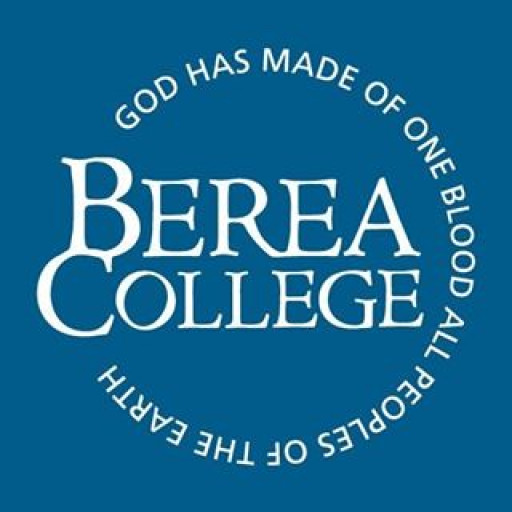Photos of university / #sdstatepics
Health Journalism at South Dakota State University is a comprehensive undergraduate program designed to prepare students for a dynamic and impactful career in health communication, media, and information dissemination. This program aims to equip aspiring journalists with the skills necessary to accurately and effectively report on health-related issues, medical advances, public health policies, and healthcare system developments. Students will gain expertise in science and health communication, journalistic writing, data analysis, and multimedia storytelling, ensuring they can inform the public and influence health outcomes through responsible journalism. The curriculum combines foundational courses in journalism, communication theories, and media ethics with specialized classes focused on health sciences, epidemiology, biostatistics, and health policy. Practical training is emphasized through internships, newsroom experiences, and multimedia projects, allowing students to build a robust portfolio and professional network. Faculty members are experienced professionals in health communication, journalism, and public health, offering mentorship and industry insights. Graduates of the program will be well-prepared to work in various media outlets, including newspapers, magazines, broadcast stations, digital media, and health organizations, providing accurate, compelling, and accessible health information to diverse audiences. The program also encourages engagement with current health issues, fostering critical thinking, ethical reporting, and innovative storytelling techniques. By completing the Health Journalism program at South Dakota State University, students will gain the knowledge, skills, and practical experience necessary to become effective health communicators who can contribute to public understanding, health literacy, and informed decision-making in an ever-evolving media landscape.
The Health Journalism program at South Dakota State University is designed to prepare students for the dynamic and impactful field of health communication. This interdisciplinary program combines principles of journalism, public health, and communication to equip students with the skills necessary to effectively report on health-related issues and communicate complex scientific information to diverse audiences. Throughout the program, students engage in rigorous coursework that covers topics such as health writing, investigative reporting, media ethics, health policy, and digital communication strategies. The curriculum emphasizes the importance of accuracy, clarity, and ethical considerations in health reporting, ensuring graduates are prepared to serve as credible sources of information for the public.
Students in the program have opportunities to develop practical skills through hands-on experiences, including working on real-world projects, internships, and collaborations with health organizations. The program also emphasizes understanding the social, cultural, and economic factors that influence health behaviors and outcomes, enabling students to produce nuanced and culturally sensitive media content. Throughout their studies, students learn about emerging digital tools and platforms, preparing them to adapt to the rapidly evolving media landscape and reach audiences through traditional and new media channels.
The Health Journalism program at South Dakota State University aims to produce graduates who are not only skilled journalists but also informed health communicators capable of addressing pressing health issues such as disease prevention, health promotion, and healthcare policy. Graduates are prepared to pursue careers in various sectors, including media outlets, healthcare organizations, government agencies, and non-profit organizations, where they can make a meaningful difference by promoting health literacy and informed decision-making. The program is committed to fostering critical thinking, ethical reporting, and a deep understanding of health issues, ensuring students are well-prepared to inform and educate the public on vital health topics.
Program Requirements for Bachelor of Science in Health Journalism at South Dakota State University include a combination of core coursework, specialized classes, and practical experience. Students must complete a total of approximately 120 semester credit hours to graduate. The curriculum emphasizes foundational knowledge in communication, journalism, and health sciences, along with specific courses designed to prepare students for reporting on health-related issues.
Freshman and sophomore students typically take introductory courses in English composition, media writing, and basic journalism principles, along with general education courses in social sciences, natural sciences, and humanities. As students advance to the junior and senior years, they are required to enroll in more specialized classes such as health communication, media ethics, health policy, and public health. Practical experience is a key component; students participate in internships, which could include placements in hospitals, public health organizations, or media outlets, providing real-world reporting experience.
To ensure comprehensive training, students must also complete courses in health research methods, data analysis, and医疗写作. They are encouraged to develop skills in multimedia journalism, including digital storytelling, video editing, and social media engagement. All students are expected to adhere to professional standards of journalism and uphold ethical principles, with some courses emphasizing media law and ethics.
In addition to coursework, students participate in capstone projects or senior seminars, which often involve producing a substantial journalistic report or multimedia presentation on a health-related topic. The program also recommends participation in relevant clubs and organizations, such as the American Health Lawyers Association or university media groups, to enhance professional development.
Graduates are prepared for careers in health journalism, public health communication, or related fields. They may also pursue advanced degrees in public health, medicine, or communication. To maintain good standing, students must meet the university’s academic performance standards, complete all mandatory courses, and fulfill any additional internship or practicum requirements specified by the department.
The Bachelor of Science in Health Journalism at South Dakota State University offers several financing options to support students throughout their studies. Tuition fees for in-state students are generally lower compared to out-of-state students, emphasizing affordability for residents of South Dakota. The current estimated in-state undergraduate tuition and fees are approximately $10,000 per year, while out-of-state students can expect to pay around $20,000 annually. These costs cover tuition, fees, and access to university resources.
Financial aid opportunities are widely available through federal and state programs, including the Federal Pell Grant, Federal Supplemental Educational Opportunity Grant (FSEOG), and the South Dakota Opportunity Scholarship. Students are encouraged to complete the Free Application for Federal Student Aid (FAFSA) annually to determine eligibility for these grants and loans. The university also offers work-study programs, allowing students to obtain part-time employment on campus to help cover their expenses.
In addition to federal and state aid, South Dakota State University has institutional scholarships that students can apply for based on academic achievement, financial need, or specific talents related to journalism and health sciences. These scholarships significantly reduce overall tuition costs and can be renewable for subsequent years if academic performance criteria are maintained.
Students may also consider private loans and external scholarships from organizations interested in health communication or journalism. University financial services provide counseling and resources to assist students in creating manageable financing plans, exploring payment plans, and understanding loan obligations. Cost of living varies depending on the student's housing choice; on-campus housing provides a convenient living option with estimated costs around $8,500 per year, whereas off-campus housing costs may vary based on location and accommodations.
Financial planning is an integral part of enrollment at South Dakota State University, and prospective students are encouraged to engage with the university’s financial aid office early in the application process. The university makes efforts to keep education affordable and accessible, ensuring that students pursuing a degree in health journalism can manage the costs effectively through available financial resources. Overall, students should budget for tuition, fees, books, supplies, housing, and personal expenses, and seek out all available aid opportunities to minimize their financial burden during their studies.
The Health Journalism program at South Dakota State University is designed to prepare students for a career in reporting on health-related issues, policies, and developments. This interdisciplinary program combines foundational journalism skills with specialized knowledge in health sciences, public health, and medical communication. Students enrolled in the program have access to state-of-the-art facilities, experienced faculty members, and opportunities for hands-on learning through internships, research projects, and collaborations with local health organizations.
The curriculum covers key topics such as health communication strategies, medical reporting, health policy analysis, epidemiology, and public health issues. Students learn to craft clear, accurate, and engaging stories that inform the public and influence health outcomes. The program emphasizes the importance of ethical journalism and accuracy, especially given the critical nature of health information in safeguarding public well-being.
Graduates of the Health Journalism program are well-equipped to work in various media platforms, including print, digital, broadcast, and online outlets. They may also pursue careers in health communications for government agencies, non-profit organizations, healthcare providers, and advocacy groups. The program aims to develop students' critical thinking, research abilities, and ethical standards, ensuring they can effectively communicate complex health information to diverse audiences.
South Dakota State University supports its health journalism students through professional development workshops, guest lectures from industry experts, and participation in national health reporting competitions. The program also encourages engagement with community health projects to foster real-world experience and deepen understanding of the social determinants of health. Overall, it is committed to cultivating skilled, responsible journalists who can contribute to public health awareness and education through impactful storytelling and accurate reporting.







